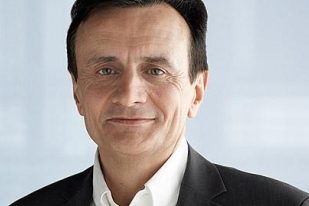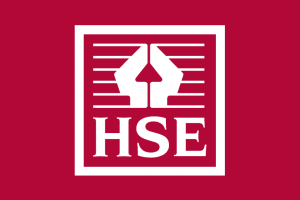Drugs group in £5.3bn deal with Japanese partner for new cancer treatment

Pharmaceutical group Astrazeneca has sealed a £5.3bn deal with Japanese group Daiichi Sankyo Company to develop and sell a promising cancer drug.
The group, which employs around 4,700 people in the North West on sites at Macclesfield and Alderley Park in Cheshire and Speke on Merseyside, said its trastuzumab deruxtecan product is currently in development for the treatment of conditions including breast and gastric cancer.
The companies will jointly develop and commercialise trastuzumab deruxtecan worldwide, except in Japan where Daiichi Sankyo will maintain exclusive rights.
Daiichi Sankyo will be solely responsible for manufacturing and supply.
Pascal Soriot, Astrazeneca chief executive, said: “We believe that trastuzumab deruxtecan could become a transformative new medicine for the treatment of HER2-positive breast and gastric cancers.
“In addition, it has the potential to redefine breast cancer treatment as the first therapy for HER2-low expressing tumours. It also has the potential to treat other HER2-mutated or HER2-overexpressing cancers, including lung and colorectal cancers. We are proud to be working with Daiichi Sankyo, a long-term collaborator of AstraZeneca in other disease areas.”
George Nakayama, representative director, chairman and chief executive of Daiichi Sankyo, said: “Trastuzumab deruxtecan is the flagship asset in our oncology pipeline created by our relentless pursuit of science and technology, the most important strengths of our company.
“Through the strategic collaboration with AstraZeneca, a company with a wealth of global experience and expertise in oncology, we will combine our respective skill sets to maximise the value of trastuzumab deruxtecan and accelerate the establishment of our global oncology business.
“By aiming to provide new treatment options across a wide range of cancers as soon as possible, we will maximise our contribution to patients with cancer and their families around the world.”
Under the terms of the agreement, AstraZeneca will pay Daiichi Sankyo an upfront payment of £1.04bn, half of which is due upon execution, with the remainder payable 12 months later.
Contingent payments of up to £4.26bn include £2.92bn for potential successful achievement of future regulatory and other milestones, as well as £1.34bn for sales-related milestones.
AstraZeneca and Daiichi Sankyo will share equally development and commercialisation costs as well as profits from trastuzumab deruxtecan worldwide, except for Japan.
The transaction is expected to be neutral to Astrazeneca core earnings in 2019, with growing Core earnings per share accretion from 2020 and making a significant contribution in 2023.
The upfront payment and near-term milestones under the transaction will be funded from the proceeds of a new equity placement of approximately £2.7bn, of which more than half will be used to fund this transaction and the ongoing collaboration.
Russ Mould, investment director at Manchester-based investment firm AJ Bell, said: “AstraZeneca is in deal-making mode as it continues to gain momentum following the return of sales growth in 2018.
“A deal worth up to $6.9bn with Japan’s Daiichi Sankyo to develop and sell a new cancer drug is a bold move given that it won’t improve earnings in the near-term.
“However, AstraZeneca will be taking a very long-term view with such an agreement, particularly if the drug becomes a blockbuster.
“Large pharmaceutical companies have been racing to replace declining sales from previous blockbuster drugs which have suffered from the loss of patent protection.
“Cheaper generic drugs offered by rivals have caused companies like AstraZeneca and GlaxoSmithKline to trip up.
“These big companies now appear to be coming out of this difficult phase and are finding ways to fill their growth pipeline. However, there is still a risk that they acquire new drugs at any price.”
He added: “AstraZeneca is already under pressure to make up for reduced revenue from products which have lost patent protection in order to keep paying generous dividends.
“Splashing out on big acquisitions could put the dividend at risk unless they immediately produce strong cash flows.
“A cash call alongside the Daiichi Sankyo deal is understandable as it will help to fund the transaction, repay some bonds and strengthen the balance sheet.
“The company also reassures that the transaction won’t affect its progressive dividend policy.
“While that will be a relief to shareholders, one should still be aware of the risk to future dividends if AstraZeneca has regained its appetite for mega deals.”







